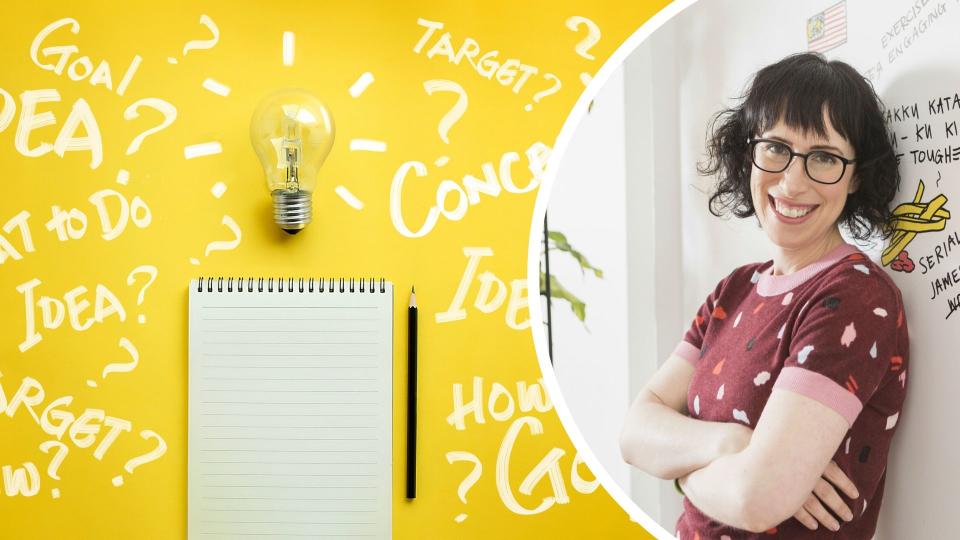The perfect productivity hack: How to spend the last 5 minutes of your work day

Have you ever struggled to leave the office, knowing that there’s work left unfinished? It’s tempting to stay and nut out the last few paragraphs, data sets and emails.
More from Amantha: What happened when this woman gave her staff unlimited annual leave
More from Amantha: Quitting this workplace habit will make you finish tasks 40% faster
More from Amantha: Your to-do list could be working against you
But according to innovation expert and founder of consultancy Inventium, Amantha Imber, one of the best things you can do for your productivity is to try to leave that piece of work half-done - deliberately.
Imber hosts the How I Work podcast, on which she’s interviewed more than 70 people.
One of the most interesting lessons she’s learnt from the podcast was from psychologist Adam Grant from Wharton University.
“The thing he does is he will finish tasks halfway at the end of the day,” she told Yahoo Finance.
“It's like sort of cracking off on a downhill slope, so the next day when you resume, you can just pick back up where you left off and there's no kind of issue around getting started and you can just seamlessly get back into it.”.
And it’s backed up by science: the Ziegarnik effect shows that people have a better memory for unfinished tasks, as they remain at the front of the mind until they can be ticked off.
That means that if a task feels too daunting, or too much to start before the end of the day, it can be a big help just to start - even if that means writing one sentence.
This way, when we arrive in the office the next day, the tension from not having completed will be strong and we’re keen to get on with the job.

Ernest Hemingway and Roald Dahl both spoke of the virtues of the technique.
“When you are going good, stop writing,” Hemingway said. He would sometimes finish a writing session mid-sentence, thus avoiding the terrifying blank page.
“One of the vital things for a writer who’s writing a book, which is a lengthy project and is going to take about a year, is how to keep the momentum going,” Dahl added.
“I never come back to a blank page; I always finish about halfway through.
“If you stop when you are going good, as Hemingway said, then you know what you are going to say next. You make yourself stop, put your pencil down and everything, and you walk away. And you can’t wait to get back because you know what you want to say next and that’s lovely and you have to try and do that.”
Amantha’s other lessons
With nearly 100 hours of interviews with experts under her belt, Imber said another easy hack: just make tiny changes.
Think: leaving your book on top of your phone on your bedside table. That way, when you jump into bed at the end of the day, you reach for the book first, rather than spending time mindlessly scrolling through your phone.
“I love hearing about some of the quirky but still very, very practical things that people do,” Imber said.
Another simple hack is to change your email and social media passwords when you’re out of the office.
She interviewed 1800-GOT-JUNK founder and CEO Brian Scudamore who does just that on holiday to best switch off.
“[It] is quite an extreme hack,” Imber said.
“He gets his assistant to change his email and social media passwords, so he physically cannot log to any kind of digital distractions, which I love.”
But do they work?

The small changes can have a huge pay-off, Imber said.
“They can be absolutely huge.”
At Inventium, she runs a program called the Workday Reinvention Program which includes 15 to 20 productivity strategies.
“We teach the people over a six-week period and we measure productivity at the beginning and at the end of the program.
“And typically we find that we are getting a productivity increase of around 20 per cent to 25 per cent, so if you extrapolate that out, that's like adding an extra day onto people's week in terms of productivity and what they can achieve, even though they're not working more hours.”
Or in the words of Roald Dahl’s beloved Willy Wonka: “We have so much time and so little to do. Strike that, reverse it.”
Make your money work with Yahoo Finance’s daily newsletter. Sign up here and stay on top of the latest money, news and tech news.
Follow Yahoo Finance Australia on Facebook, Twitter, Instagram and LinkedIn.

 Yahoo Finance
Yahoo Finance 
